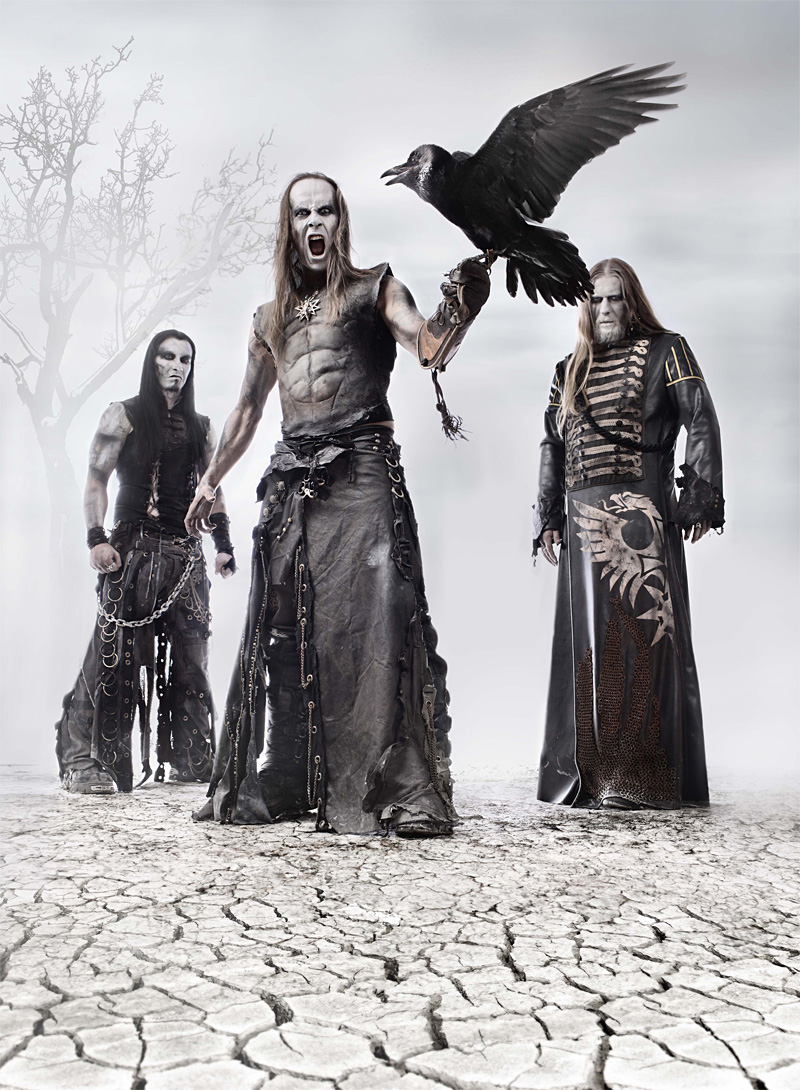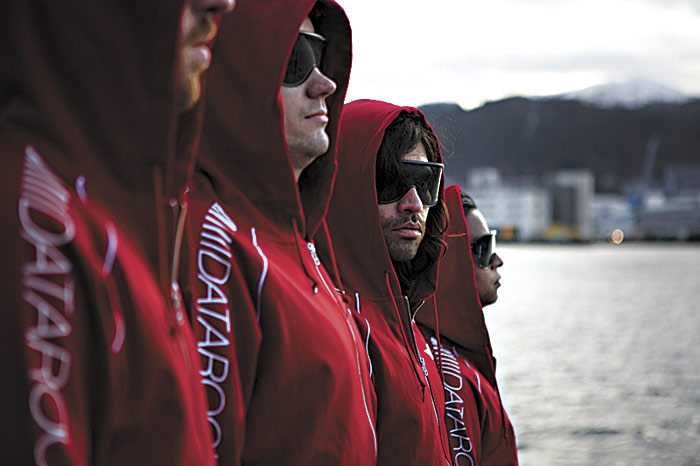Since 1975, it’s become commonplace for bands to take the Ramones’ visionary single-mindedness as free license just to play like shit. But as hordes of flagrantly unpolished bands emerge from nearly every corner of the globe, it’s about time it dawned on people that playing like shit isn’t particularly interesting in itself. You can be as raw as you want and throw away proficiency, but you still have to strive if you want to grab people.
Thankfully, some bands catch on more quickly than others. Case in point: Monterrey, Mexico’s Ratas del Vaticano (“Vatican Rats”). With their gloriously dilapidated sound and sophomoric preoccupations (porn and jerking off come up repeatedly), it’s obvious from note one that the Ratos have little interest in lifting their minds out of the gutter and don’t give a rat’s ass about production values. Nonetheless, aside from the apparent influence of the Ramones, Germs, Adolescents, the Killed by Death roster, and a slew of Latin garage acts, certain intangible elements make this four-piece stand out right away.
For starters,there’s always something else lurking on the fringes of the band’s sound. The beginning of the song “Olvido,” for example, could almost be confused with the shaky attempts of an aspiring chamber-pop group to score a low-budget film. Of course, rather than steer the music deeper into ambient Jim Jarmusch territory, the band comes slamming in about as gracefully as a sloppy joe hitting the floor. “El Cholo del Salon” features an accidentally distorted vocal with a delay effect so poorly timed it threatens to derail the song’s already ungainly lurch.
Despite all that, what makes this band’s impact really stick—besides the shades of ’60s psychedelia and surf rock that pop up, only to dissipate quickly, like a burp—is its utter disregard for purism.
“We’re not part of the ‘real’ punk scene,” explains guitarist David Serrano, 24, who says today’s Mexican punks tend to favor a more hardcore sound. “We’ve played with some Mexican bands and they’re cool, but they think we’re not punk enough. They’re used to that [fast, heavy]du-pah du-pah du-pahsound. We play an old-fashioned style. They’re trapped in image. You have to have a Mohawk and patches.”
Mexican society, says Serrano, tends toward conformity in general.
“I think it’s because we don’t have diversity of races or cultures,” he offers. “Ninety percent of the population ismestizo. So we don’t see many different types of people.”
Fittingly, the band’s punk, contrarian attitude comes across most assertively in the way it embraces genres that have nothing to do with punk. Serrano explains that, besides acts like Sonic Youth and Nirvana, the band is into traditional Mexican styles like the cumbia and ranchera. With no shame, Serrano even admits that he still likes what his mom listens to. And that the admiration goes both ways. Mom’s very supportive—until money starts to get tight at home. Then she gets on his case.
But money—or its absence—isn’t really an obstacle this band recognizes. When the Ratas arrive in Washington for two shows in Seattle and one in Tacoma this week, they’ll have their fingers crossed. Aside from the fact that this is their first U.S. tour, they’re borrowing equipment in each city they play.
“We don’t have any instruments with us,” says Serrano, “just cymbals and guitar pedals. We’re very shy people when it comes to asking for instruments. But people can be very nice here. They ask us, ‘Do you have instruments?”Well…no.'”
Nothing if not intrepid, though, the Ratas toured Mexico for a week this past January. In March, after a grueling four-hour interrogation at the border, they made it to SXSW (as part of an official showcase for Siltbreeze, the U.S. label that picked up the band’s full-length Mocosos Pateticos). But the band harbors no illusions about turning this into a full-time career. Media coverage at home is limited to rags likeEl Sol, a Monterrey tabloid known more for its graphic depictions of nudity and violence than its journalism. Serrano explains that the band gets to play a lot, but they don’t have much of a buzz going in their relatively upscale hometown. “Rich people,” Serrano chuckles, “are not coming to the punk shows. They go listen to DJs.”
Class issues exist on a magnified scale in their country, and for a lot of young Mexicans, punk provides an important escape. But the band’s lyrics lack the hopelessness, rage, or even blunt cynicism that one might expect. Why? Because the Ratos havereal jobs. They’re certainly not wealthy, but they get by. They don’t necessarilyneedpunk; they just like it.
“Negative things,” Serrano says, “inspire us a lot, but the music has a positive message: Don’t take life so seriously. Just have fun. Because in the end you can’t change anything but yourself. Trying to change the world is impossible. But the good thing is that you can change a lot in yourself—like by not being an asshole.”








